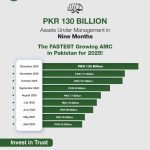President Federal B Area Association of Trade and Industry (FBATI) Shaikh Muhammad Tehseen urged the government to review the electricity tariff policy for domestic, commercial, and industrial consumers of Karachi.
He mentioned that the decision of the power regulatory authority to revise the FY 2023–24 Fuel Cost Adjustments (FCA) is unjustified and retroactive, which will extract Rs 28 billion from Karachi consumers after the fiscal year has already closed, violating regulatory finality.
The post-year revisions erode business confidence and contradict NEPRA’s own principle of predictable tariff adjustment, he remarked.
He pointed out that NEPRA’s current tariff determination has fixed K-Electric’s average tariff at Rs 32.57 per unit under Multi Year Tariff (MYT), while other DISCOs enjoy an average rate of Rs 34 per unit.
This discriminatory pricing forces Karachi to subsidize loss-making DISCOs, despite being the country’s most efficient and compliant consumer base, President FBATI said and warned that if such disparities continue, the power utility could face financial distress, threatening the stability and reliability of Karachi’s energy supply.
The consumers in Karachi are also burdened with a Power Holding Limited (PHL) surcharge of Rs 3.23 per unit, despite K-Electric having no connection to PHL’s circular debt liabilities.
He demanded that PHL surcharge be removed immediately to ensure equity and fairness across all distribution regions. “Karachi consumers cannot be held responsible for inefficiencies and financial mismanagement of other DISCOs,” he remarked.
Tahseen also pointed out that Karachi’s consumers and industries are still awaiting Rs 33 billion from the COVID incremental consumption incentive package announced to reward higher electricity usage during low-demand periods.
Instead of releasing this pending benefit, the Power Division and NEPRA are clawing back previously passed-on relief, worsening financial pressure on industries, he said and added. The delay reflects a clear policy inconsistency; reliefs are promised but never delivered, while new recoveries are imposed retrospectively.
Also Read: Pakistan Dairy Association hosts a National Seminar on World Food Day 2025
































